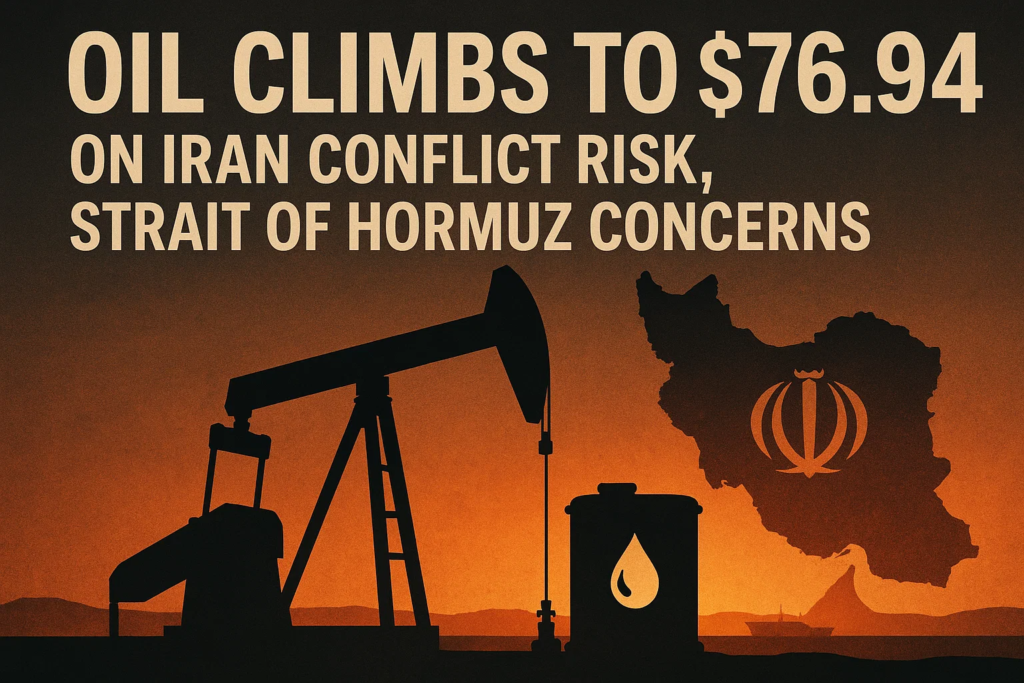Crude prices edged higher in Asian trade on Thursday, driven by mounting concerns that the Israel-Iran conflict could intensify and disrupt oil supplies from the Middle East.
At 09:00 GMT, Brent crude futures rose 0.3% to $76.94 per barrel, while West Texas Intermediate (WTI) climbed 0.5% to $73.83. Both contracts are poised for strong weekly gains, with geopolitical risk adding fresh volatility to energy markets.
The escalation follows a Bloomberg report that U.S. officials are preparing for a potential military strike on Iran, possibly as soon as this weekend. While specifics remain unclear, the report has reignited fears of a broader regional conflict.
President Donald Trump has intensified rhetoric, demanding Iran’s unconditional surrender, though he has not confirmed direct military involvement. Talks of potential nuclear negotiations also surfaced, underscoring the complex and shifting dynamics.
Strait of Hormuz Becomes Strategic Flashpoint
The ongoing conflict—now entering its seventh day—has sparked alarm among global energy analysts, particularly due to the Strait of Hormuz, a key transit point for global oil shipments.
According to ING analysts, nearly one-third of the world’s seaborne oil trade passes through this narrow chokepoint. Any significant disruption could send crude prices skyrocketing.
“A shutdown of the Strait of Hormuz would likely drive oil to $120 per barrel,” ING noted in a client update.
Adding to market concerns, Shell CEO Wael Sawan told a Tokyo industry conference that the company is being “very careful” with Middle East shipping due to rising risks.
Key concerns around regional oil transit:
- Risk of U.S.-Iran military confrontation
- Attacks exchanged between Iran and Israel
- Strategic vulnerability of the Strait of Hormuz
- Heightened caution from global oil majors like Shell
Sawan emphasized that a blockage of the Strait would cause severe disruption to global trade, highlighting the energy sector’s deep reliance on secure Middle Eastern routes.
U.S. Inventory Draw, Fed Decision Support Prices
Beyond geopolitics, oil prices also gained support from strong U.S. inventory data. Government reports this week showed a larger-than-expected draw in U.S. crude stockpiles, signaling robust demand.
With the summer travel season approaching, analysts expect U.S. fuel consumption to rise, further tightening supply.
Meanwhile, the Federal Reserve held interest rates steady, maintaining support for energy prices by avoiding immediate economic tightening.
As global energy markets remain on edge, traders are closely watching both the Fed’s tone and developments in the Middle East for the next direction in prices.


